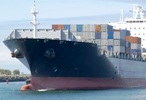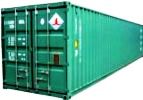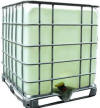| Mubychem Group, established in 1976, is the pioneer manufacturer of Malic Acid, Pharmaceutical, Fragrance & Flavor chemicals in India. Mubychem Group has several manufacturing facilities spread across Gujarat and Mumbai India and world wide contacts and toll manufacturers. We are exporting globally to countries like USA, Canada, Europe, UAE, South Africa, Tanzania, Kenya, Egypt, Nigeria, Uganda, Turkey, Mexico, Brazil, Chile, Argentina, Dubai etc. |
The participating units have one or more accreditations like FDA - GMP approval; ISO-9001 Certified; "REACH"registered; ISO-22000; Kosher Certified;Halal Certified; HACCP. We offer Pure & IP BP USP FCC Food Grade ACS AR Analytical Reagent Grades of Chemicals | |







Malic Acid BP SDS MSDS Sheet of Manufacturers
Malic Acid
Pure
BP Ph Eur USP NF FCC Food Grades

Malic Acid GHS SDS MSDS Sheet, Material Safety Data Sheet
1. Product Identification
Synonyms: DL-Hydroxysuccinic acid, DL Malic Acid, (±)-2-Hydroxysuccinic acid
CAS No.: 6915-15-7, ( 617-48-1)
EINICS EC-No.: 230-022-8
Molecular Weight: 134.09
Chemical Formula: C4H6O5
Recommended usage: Industrial Manufacturing.
2. Hazards Identification
GHS, Globally Harmonized System Classification in accordance with 29 CFR 1910
Classification according to Regulation (EC) No 1272/2008
Acute toxicity, oral Category 4
Skin corrosion/irritation Category 2
Serious eye damage/eye irritation Category 2A
Specific target organ toxicity, single exposure; Respiratory tract irritation Category 3
Labelling according to GHS and Regulation (EC) No 1272/2008
GHS Label Elements  Irritant |
Signal Words: Warning
Hazard statements:
H302: Harmful if swallowed.
H315: Causes skin irritation.
H319: Causes serious eye irritation.
H335: May cause respiratory irritation.
Precautionary statements:
P262: Do not get in eyes, on skin, or on clothing.
P264: Wash skin thoroughly after handling.
P280: Wear protective gloves/protective clothing/eye protection/face protection.
P270: Do not eat, drink or smoke when using this product.
P273: Avoid release to the environment.
P330: Rinse mouth.
P362: Take off contaminated clothing and wash before reuse.
P301+312: IF SWALLOWED: Call a POISON CENTER or doctor/physician if you feel unwell.
P332+313: If skin irritation occurs: Get medical advice/attention.
P302+ P352 - IF ON SKIN: Wash with plenty of soap and water.
P305+ P351 + P338 IF IN EYES: Rinse cautiously with water for several minutes. Remove contact lenses, if present and easy to do. Continue rinsing.
P332+313: If skin irritation occurs: Get medical advice/attention.
P337+P313 If eye irritation persists: Get medical advice/ attention.
P501: Dispose of contents/container to authorised agents only.
Labelling in accordance with Directive 67/548/EEC:
Symbols: Xi Irritant
R36/37/38
R43
For the full text of the H-statements & R-phrases mentioned in this Section, see Section 16.
3. Composition/Information on Ingredients
Ingredient: Malic Acid
CAS No.: 6915-15-7 (617-48-1)
EINICS EC-No.: 230-022-8
4. First Aid Measures
Always get medical attention after the first aid is over.
Inhalation: If Malic Acid is inhaled, remove to fresh air. If not breathing, give artificial respiration. If breathing is difficult, give oxygen and get medical attention immediately.
Ingestion: Never give anything by mouth to an unconscious person. Get medical attention.
Skin Contact: Immediately flush skin with plenty of water for at least 15 minutes while removing contaminated clothing and shoes. Get medical attention. Wash clothing and shoes before reuse.
Eye Contact: Immediately flush eyes with plenty of water for at least 15 minutes, lifting lower and upper eyelids occasionally. Get medical attention immediately.
5. Fire Fighting Measures
Fire: As with most organic solids, fire is possible at elevated temperatures or by contact with an ignition source.
Explosion: Fine dust dispersed in air in sufficient concentrations, and in the presence of an ignition source is a potential dust explosion hazard.
Fire Extinguishing Media: Water spray, dry chemical, alcohol foam, or carbon dioxide.
Special Information: In the event of a fire, wear full protective clothing and NIOSH-approved self-contained breathing apparatus with full face piece operated in the pressure demand or other positive pressure mode.
6. Accidental Release Measures
Small Spill: Use appropriate tools to put the spilled solid in a convenient waste disposal container.
Large Spill: Corrosive solid. Stop leak if without risk. Do not get water inside container. Do not touch spilled material. Use water spray to reduce vapors. Prevent entry into sewers, basements or confined areas; dike if needed. Eliminate all ignition sources.
7. Handling and Storage
Keep in a tightly closed container, stored in a cool, dry, ventilated area. Protect against physical damage. Isolate from incompatible substances. Containers of Malic Acid may be hazardous when empty since they retain product residues (dust, solids); observe all warnings and precautions listed for the product. Avoid dust formation and control ignition sources. Employ grounding, venting and explosion relief provisions in accord with accepted engineering practices in any process capable of generating dust and/or static electricity. Empty only into inert or non-flammable atmosphere. Emptying contents into a non-inert atmosphere where flammable vapors may be present could cause a flash fire or explosion due to electrostatic discharge.
8. Exposure Controls/Personal Protection
Airborne Exposure Limits: None established.
Ventilation System: A system of local and/or general exhaust is recommended to keep employee exposures as low as possible. Local exhaust ventilation is generally preferred because it can control the emissions of the contaminant at its source, preventing dispersion of it into the general work area. Please refer to the ACGIH document, Industrial Ventilation, A Manual of Recommended Practices, most recent edition, for details.
Personal Respirators (NIOSH Approved): For conditions of use where exposure to dust or mist is apparent and engineering controls are not feasible, a particulate respirator (NIOSH type N95 or better filters) may be worn. If oil particles (e.g. lubricants, cutting fluids, glycerin, etc.) are present, use a NIOSH type R or P filter. For emergencies or instances where the exposure levels are not known, use a full-face positive-pressure, air-supplied respirator. WARNING: Air-purifying respirators do not protect workers in oxygen-deficient atmospheres.
Skin Protection: Wear impervious protective clothing, including boots, gloves, lab coat, apron or coveralls, as appropriate, to prevent skin contact.
Eye Protection: Use chemical safety goggles and/or full face shield where dusting or splashing of solutions is possible. Maintain eye wash fountain and quick-drench facilities in work area.
9. Physical and Chemical Properties
Appearance: Malic Acid is white to off-white crystals or powder.
Odor: Faint acidulous odor.
Solubility: Soluble in water.
Density: 1,6 g/cm3 at 20 °C
pH: Approximately 2, Acidic.
% Volatile by volume @ 21C (70F): 0
Auto-ignition temperature: 340 °C
Molecular Weight: 134.09
Chemical Formula: C4H6O5
Melting Point: 131 - 133 °C - lit.
10. Stability and Reactivity
Stability: Malic Acid is stable under ordinary conditions of use and storage.
Hazardous Decomposition Products: Carbon dioxide and carbon monoxide may form when heated to decomposition.
Hazardous Polymerization: Will not occur.
Incompatibilities: Excessive heat, Strong oxidizers.
Conditions to Avoid: Heat, dusting and incompatibles.
11. Toxicological Information
LD50 Oral - Rat - male and female - 3.500 mg/kg
LD50 Intraperitoneal - Rat - 100 mg/kg
LD50 Intraperitoneal - Mouse - 50 mg/kg
Carcinogenic Effects: Not a reported carcinogen by IARC, NTP, ACGIH, OSHA.
12. Ecological Information
Toxicity
Toxicity to daphnia and other aquatic invertebrates:
Immobilization LC50 - Daphnia magna (Water flea) - ca. 240 mg/l - 48 h
Mobility in soil: No data available
PBT & vPvB: This substance/mixture contains no components considered to be either persistent, bioaccumulative and toxic (PBT), or very persistent and very bioaccumulative (vPvB) at levels of 0.1% or higher.
13. Disposal Considerations
Whatever cannot be saved for recovery or recycling should be managed in an appropriate and approved waste disposal facility. Processing, use or contamination of this product may change the waste management options. State and local disposal regulations may differ from federal disposal regulations. Dispose of container and unused Malic Acid in accordance with legal requirements.
14. Transport Information
DOT: Not regulated
TDG: Not regulated
IATA: Not regulated
IMDG/IMO: Not regulated
ADR/RID: Not regulated
15. Regulatory Information
USA:
SARA 313: Not applicable
SARA 311/312: Acute Health Hazard
California Proposition 65: This product does not contain any Proposition 65 chemicals
Canada WHMIS Hazard: Class D2B Toxic materials
16. Other Information
Hazard Symbol:
Xi = Irritant
Risk Phrases:
R36/37/38 = Irritating to eyes, respiratory system and skin.
R43 = May cause sensitization by skin contact.
H302 = Harmful if swallowed.
H315 = Causes skin irritation.
H319 = Causes serious eye irritation.
H335 =May cause respiratory irritation.
DISCLAIMER: The information and recommendations set forth herein (hereinafter "Information") are presented in good faith and believed correct as of the date hereof. It is compiled from various sources and it is not necessarily all inclusive nor fully adequate in every circumstance. In addition, these suggestions should not be confused with nor followed in violation of applicable laws, regulations, rules or insurance requirements applicable. This MSDS sheet is intended only as a guide to the appropriate precautionary handling of the material by a properly trained person using this product. Individuals receiving the information must exercise their independent judgment in determining its appropriateness for a particular purpose.
Malic Acid BP USP NF FCC Food Grade Manufacturers:
MUBYCHEM GROUP
CHINCHBUNDER, MUMBAI 400009, INDIA
TEL: (OFFICE) 91-22-23774610, 91-22- 23723564. 91-22-23728264
e-mail: anmol@pcmenergy.com

Copyright and Usual Disclaimer is Applicable.

Global or International Malic Acid BP USP NF FCC Food Grade --- Suppliers, Exporters, Importers, Manufacturers
If I give you “My Word” Nobody can undo it.
If I sign an “Agreement” my Lawyer will undo it
Perfection is made up of small thing but it is not small.
